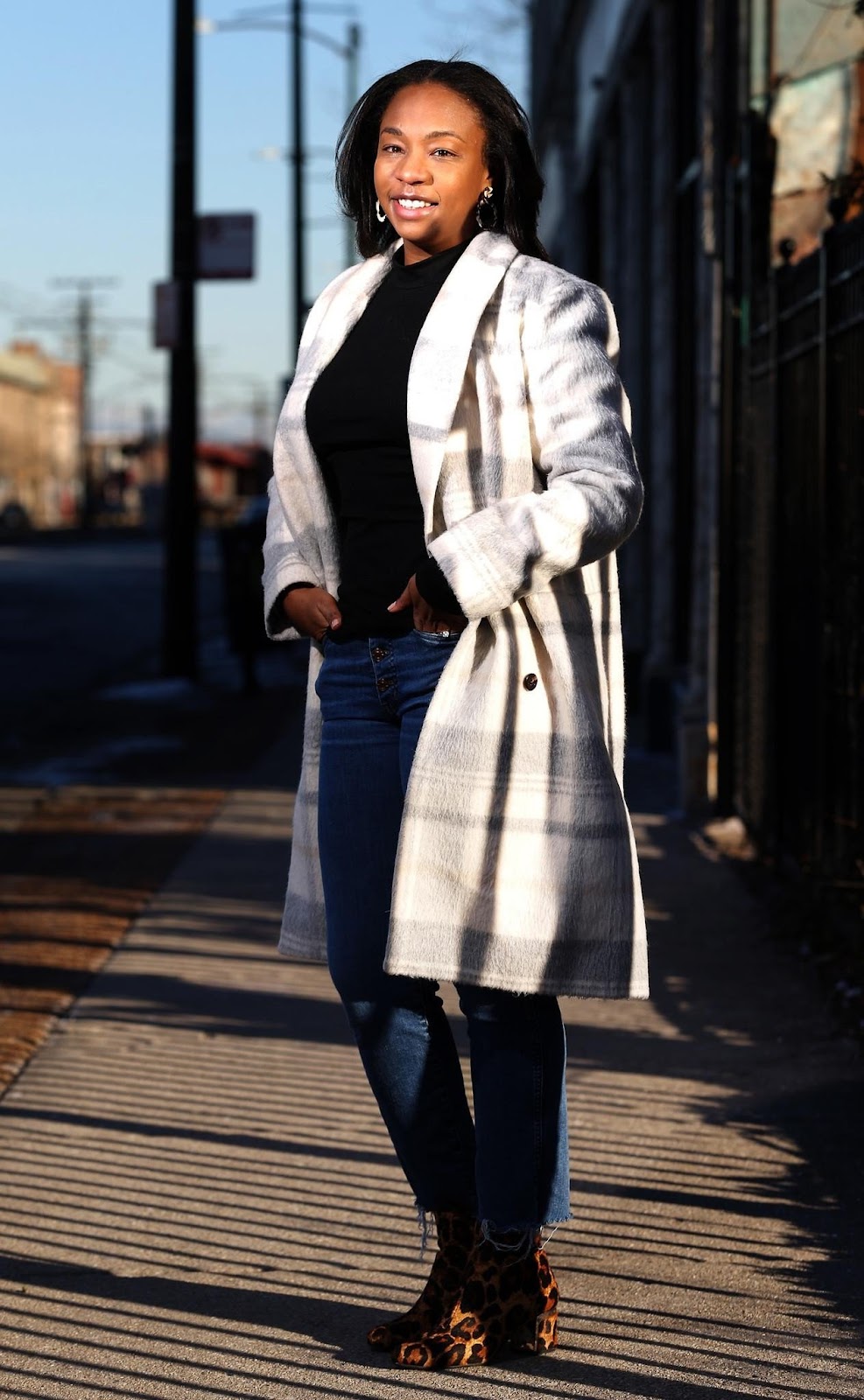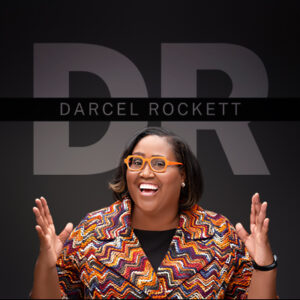They are just three letters. D, E and I. But together, the letters could change Chicago in 2021.
During and after last year’s protests against police brutality, conversations about racial injustice deepened and began to spread. There was excitement in the air that social change might finally be possible. It seemed that everyone was talking about DEI, which stands for diversity, equity and inclusion, and about real commitments to improve access in such areas as jobs, housing, health care and education.
We reached out to Black leaders at notable Chicago institutions to see how things were going, how they are consciously moving the conversation forward for measurable improvements, and thoughts on how they and others can continue to move the needle.
Some common themes were revealed: a need to see more diverse voices in the rooms where decisions are made; a commitment to doing the work for as long as it takes; the promise to hold institutions accountable; and the importance of getting into all the communities an institution serves. Different organizations are at different spots along their DEI paths, but these leaders all feel real change can happen in 2021, especially when diversity is proven to be a benefit to an organization, and not just “the right thing to do.”
Progress is already being made, according to Maurice Swinney, the chief equity officer for Chicago Public Schools. “I think, for the most part, we were already on the equity journey of making sure that young people within our schools have a sense of belonging that changes the outcomes, internally and externally,” he said.
Since CPS’ Office of Equity was launched in 2018, the school district has created a five-year strategic plan to narrow the opportunity gap for students. Swinney said progress has also been made with the passage in the Illinois General Assembly of HB 2170, a bill designed to advance racial equity in education for students of color, English learners and those from low-income households. (The bill was sent to Gov. J.B. Pritzker on Feb. 4, and he has 60 days to act.)
“I talk with equity leaders all the time, and everybody’s trying to figure out their approach in their districts and schools,” he said.
Swinney said he is excited to have his job in the middle of a pandemic and amid ongoing racial injustice because he gets to be at the table to help provide solutions.
Kayce Ataiyero, former Chicago Tribune journalist and current managing director of communications for the Joyce Foundation, said she’s familiar with being the only Black person at the table. She said she often refers to it as “being both an asset and an assignment.”
“I’m fortunate to work somewhere that uses it as an asset, but it also comes with this enormous assignment of responsibility,” Ataiyero said. “When it comes to racial equity and inclusion, you’re talking about trying to rewire a system that wasn’t designed with us in mind. So that we have a place in it. That is not work that’s going to be done this year, this decade. But it can be done.”
The private Joyce Foundation invests in potential solutions to racial, equity and economic problems, and then works to have those solutions inform public policy decisions in the Great Lakes region.
In November, the foundation started a new initiative for the next generation of investment managers, directing capital to early stage founders of race- and gender-diverse firms.
“I think the more of us who take on the assignment, not as a burden, but an opportunity, and who are willing to do the work of helping us move forward, I think that’s how we get there,” Ataiyero said.
“It’s important to me that there’s a lot of us at the table,” said Alexandra Sims, president and founder of APS & Associates. Since 2016, she has owned and run the one-stop shop for campaigns, including crisis management. Cook County State’s Attorney Kim Foxx is a client, as is the Obama Foundation.
Sims said she wants to see more Black involvement in the field, which is why she’s co-organizer of Black Bench Chicago, a training program for the next generation of Black public affairs leaders.
“The Bench is about us, as millennials, stepping into some of these leadership positions,” she said. “Those are roles that we should be in. There’s a group of us that are Black that work in this work. We compare notes a lot.”
She talked about making sure no one forgets the Jan. 6 invasion of the U.S. Capitol by rioters: “I think what commonly happens is we see some blatant racism, we see white supremacy, we see inequities. And as America, we want to cover it up. I think this new day, we can’t cover it up if we want to move forward. That’s really important to me as we move forward, especially for my generation to call things what they are and try to right those wrongs.”
Karen Freeman-Wilson, former mayor of Gary, Indiana, agrees with Sims about calling out inequities. The Chicago Urban League has been working for equity for the Black population through social and economic empowerment for 104 years. So, when Freeman-Wilson came to the organization as president and CEO, she was excited about the opportunity to push an equity agenda.
Freeman-Wilson said she wants to see more metrics from companies and institutions to make sure the needle moves more in 2021 than it did in 2020. She talked about Rosalind Brewer’s position as Walgreens CEO becoming breaking news because she is the only Black woman in the Fortune 500.
“Why is she the only Black female in the top 500? What’s wrong with that picture? Along with her announcement came that recognition, and people called that out,” Freeman-Wilson said.
She said it’s important to call out such things, and that even if 10 more people in boardrooms and C-suites make a commitment to do the work, it will have an impact.
“Don’t get me wrong, there are some who are waiting for this to blow over, but here’s what people are finding — there’s money in having a much more diverse and inclusive company,” she said. “You’re more relatable to all of your customers. And to the extent that that’s the case, and people see the profit margin, then other good ol’ boys will come along.”
Charles Smith, chairman of the board of the Business Leadership Council, emphasizes that it’s important to show corporations that DEI will be a real benefit to them. The council’s mission is to grow, develop and advocate for Black businesses, give back to the community and cultivate leadership.
He said he’s seen corporations acting responsibly, and he’s hoping that’s reflective of long-term change, not just because the world is watching right now.
“If you invest in diversity, equity and inclusion, it can impact you in a very positive way,” he said. “Black companies grow; Black people hire Black people; Black people support other Black businesses. There’s this whole ecosystem that happens.”
It’s important to stick to your values when talking to corporate partners, mentors and funders, according to Jeffery Beckham Jr., interim CEO of Chicago Scholars.
Beckham left a tech startup to do leadership development with the nonprofit, which provides low-income students and first-generation college students with development opportunities and mentoring.
Celebrating its 25th year, Chicago Scholars went through its own DEI journey in 2018. According to Beckham, outside consultants were brought in, and the result was READI (Racial Justice, Equity, Accessibility, Diversity, Inclusion), a definition of Chicago Scholars’ values and a tool that helps assess the organization, as well as its corporate partners, mentors and funders.
“Inside of that, we have an entire work plan with metrics and measures in each of those areas with all of our stakeholder groups, our funders and our vendors to make sure that we’re practicing inclusive and equitable practices across the entire organization,” he said. “We say, ‘Here’s our values; here’s what we believe from a DEI standpoint. If you don’t believe that, if you’re not, living and walking the same walk, then you’re not a good partner for us.’
“And we’ve gotten OK with saying that, even when looking at funders. This is an important time to put a stake in the ground, and that has required us to have some courageous conversations internally,” Beckham said.
Museum of Science and Industry CEO and President Chevy Humphrey is going on a (virtual, for now) listening tour around the city to understand how the museum can fill gaps in science learning and to find out what different neighborhoods need.
“I feel like they need to see the leader of this institution in the community, asking the questions, listening and acting on what is heard … and understand that we care and that we want to fill those needs in communities,” said Humphrey, who is MSI’s first Black woman CEO and president.
She said she believes the museum can set an example for other institutions, when it comes to DEI.
“I currently serve as chair of the American Alliance of Museums, which is the largest museum alliance in the world, and when I look at institutions, MSI is a leader in diversity, equity, accessibility and inclusive programs,” Humphrey said.
During the pandemic, programming overseen by Rabiah Mayas, the Ruth D. and Ken M. Davee vice president of education and guest experience, has focused on neighborhoods, schools, communities and families who need a bridge to the resources of the institution. That included virtual programming and hands-on science kits sent out to libraries and park districts on the South and West sides.
Listening to communities is key, according to Director of Diversity and Strategic Development Keiana Barrett at Sterling Bay, the development firm behind the ongoing Lincoln Yards project (which has triggered debates about the city’s affordable housing policies, aldermanic privilege, tax increment financing and the city’s zoning procedures in recent years).
“Many times, developers come in with a notion of what they think a neighborhood would best benefit from, and there’s a lot of tension,” Barrett said. “I wanted to offer what I know about my communities, and what I know about the potential of our city, and be a part of the solution to help developers.”
In her role, Barrett is overseeing Sterling Bay’s DEI initiatives that include: a volunteer advisory group of commercial professionals and advocacy group leaders to help engage the minority and female contracting community; and the Prysm Institute, an incubator for health care, life sciences and technology business owners from diverse backgrounds as they grow and scale their operations. Barrett said Sterling Bay is committed to building a pipeline of diverse talent that will strengthen access to the construction and professional services industries for women and minority businesses.
The Chicago Cubs organization conversation about DEI these days is how to have a bias toward action, according to Julian Green, one of the executive sponsors of the Cubs Diversity, Equity and Inclusion Council formed during summer 2020.
“I think one of the things that companies have to acknowledge is: ‘Do you have the tools required to do this?’ While everyone believes it’s the right thing to do, you also need the tools and expertise to be able to do it. It’s not something that just can be given to an executive leader who may be diverse,” said the vice president of communications and community affairs of the Chicago Cubs.
Green points to diversity and inclusion efforts during the 1060 Project to restore Wrigley Field. He said nearly $100 million in construction contracts were awarded to minority- and women-owned businesses. Looking forward, Green said, the goal is to create a sustainable DEI strategy that lifts the entire organization. With a consulting firm, the Cubs are examining how leadership and associates view diversity, and where gaps exist.





